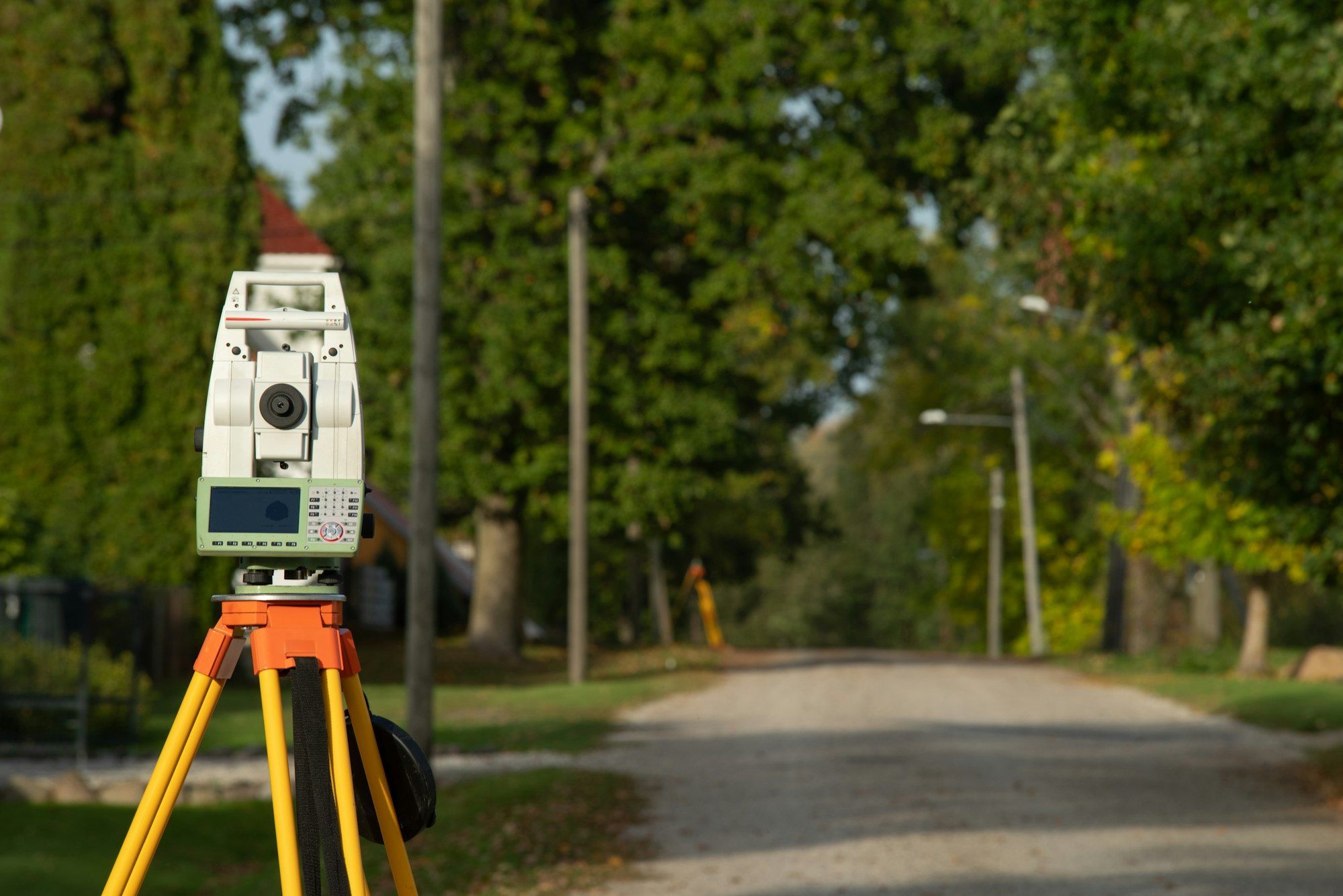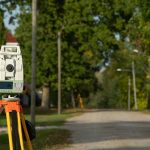In the idyllic region of Devon, nestled in the southwest of England, the prospect of owning land often comes attached with the necessary obligation of a thorough land survey. This process, although seemingly daunting, is an essential step towards ensuring the accurate measurement and legal ownership of your property. Understanding the importance and steps involved in land surveys will provide you with the confidence to navigate this process. We will guide you through the essential steps in performing a land survey in rural Devon.
Understanding the Importance of a Land Survey
Before diving into the steps involved in a land survey, it is crucial to understand why this process is important. Essentially, a land survey represents the legal blueprint of your property. This process is vital for several reasons, including determining the exact boundaries of your estate, planning for future development projects, and complying with local management and government regulations.
A voir aussi : What are the advantages of buying a multi-family home as an investment in Portsmouth?
Primarily, the land survey ensures that you are aware of the exact size and boundaries of your property. This information is vital in avoiding disputes with neighbouring properties and helps in understanding your ownership rights. Additionally, a land survey is crucial for water management, ensuring that your property has effective drainage and flood control systems in place.
If you have plans to build on your property, a survey is indispensable. Whether you’re thinking about erecting a new house, adding an extension to an existing building, or planning a landscaping project, a land survey will provide the necessary details about your site to guide your design and planning process.
A lire également : What are the legal requirements for drilling a private well at a new home site in Yorkshire?
Lastly, a land survey is often mandated by local authorities and government entities to ensure compliance with zoning regulations. In Devon, for instance, local management and gov guidelines stipulate the necessity of a land survey for various property-related activities.
Identifying the Type of Survey You Need
The next step in the process is determining the type of survey your property needs. There are several types of surveys, ranging from boundary surveys, location surveys, site planning surveys, to subdivision surveys. Some surveys are comprehensive, while others are more specific, focusing on one aspect of your property.
The type of survey you need will primarily depend on your plans for the property. For instance, if you’re planning to erect a new building on your site, you will probably need a location survey. This type of survey identifies the exact location of the property, existing buildings, and other significant features such as roads and water bodies. On the other hand, if you’re intending to subdivide your land for development, a subdivision survey might be more appropriate.
The nature of the land in Devon, with its diverse range of habitats and species, may also require a special type of survey – an ecological or environmental survey. This survey is crucial in identifying any protected species or habitats on your site, which could impact your development plans.
Finding a Qualified Surveyor
To ensure the best results, finding a qualified surveyor should be your next step. The role of the surveyor is paramount in the land surveying process, as they are responsible for conducting the survey and preparing the necessary documents. It is important to choose a surveyor who is licensed and experienced in the type of survey you require.
In Devon, there are several reputable firms and independent surveyors who can carry out a thorough and accurate survey of your property. It is advisable to do some research before settling on a surveyor. You could ask for recommendations from family or friends, or seek advice from local property management firms.
Conducting the Survey
Once you have chosen a surveyor, the next step is to conduct the survey. The surveyor will visit your site and perform various tasks, depending on the type of survey you have chosen. These tasks may include measuring the property boundaries, identifying any physical features, assessing the topography, and locating any existing structures.
The surveyor will use a range of tools and technologies to accurately measure your site, such as GPS devices, electronic distance and angle devices, and drones. Throughout this process, it is important to communicate and cooperate fully with your surveyor to ensure the survey is as accurate as possible.
Reviewing the Survey Results
After the survey has been conducted, the surveyor will present you with a detailed report of their findings. This report serves as the legal description of your land and will include information such as the size of the property, the exact location of boundaries, any physical features, and the presence of any buildings or structures.
Reviewing the survey results is an integral part of the land survey process. It is at this stage that any anomalies or issues can be identified and addressed. It is advisable to carefully review the report with your surveyor to fully understand the details of your property. This step will prepare you for the next steps in your project, whether it’s applying for permission to build a house or implementing a water management plan.
In Devon, with its rich variation of landscapes and biodiversity, land surveys are not just a formality but an essential step in any property-related project. By understanding these steps, you will be better prepared to navigate the often complex process of a land survey.
Addressing Unique Land Features and Protected Species
In the diverse landscape of Devon, it is crucial to take into account the unique features of the land and the presence of any protected species. Devon is home to a variety of wildlife, including the great crested newt, a protected species.
An ecological survey, as mentioned earlier, should be conducted to identify any such species or habitats. This survey process involves assessing the land for its ecological value, identifying any protected species, and making recommendations to preserve these species and their habitats.
It is important to note that if a protected species, such as the great crested newt, is found on your property during the survey, further investigations may be required. The Devon County Council provides guidance on protected species and how to manage them.
Your chosen surveyor should be able to provide a detailed wildlife report, outlining any ecological findings and how to approach them. This report, while it might add an additional layer to the process, is crucial for the health safety of the environment and in compliance with the Devon gov regulations.
Furthermore, if your land in Devon is near water bodies, additional water management plans may need to be implemented. These plans should aim to preserve the environmental integrity of the site and ensure the wellbeing of the local wildlife.
Submitting the Planning Application
After reviewing the survey results and addressing any unique land features or protected species, you may need to submit your planning application. This is particularly true if you intend to build on your property or make significant changes to the landscape.
The planning application process involves submitting a detailed proposal to the South West local authorities. This proposal should clearly outline your intended use of the land, such as whether it’s for residential, commercial, or agricultural purposes. It is important to include all the relevant documents, including your land survey report and any necessary wildlife reports.
The Devon County Council reviews all planning applications. They will assess whether your proposal aligns with the local zoning regulations and the overall vision for rural Devon.
The council will consider several factors when reviewing your application. These may include the potential impact on the local environment and wildlife, the suitability of your proposal for the land, and the views of local residents and stakeholders.
Once your planning application is approved, you can proceed with your plans. Remember, though, that you must adhere to the conditions set out in your approval notice.
Conclusion
Embarking on a land survey in the picturesque rural Devon doesn’t have to be an overwhelming task. Through understanding the importance of the survey, identifying the type of survey needed, and cooperating with a qualified surveyor, you are well on your way to having a legally sound and accurate blueprint of your property.
While addressing the potential presence of protected species like the great crested newt or managing unique ecological features may add layers to the process, these steps are crucial for maintaining the biodiversity of Devon. Moreover, submitting a comprehensive planning application to the Devon County Council is important for ensuring your land development aligns with local regulations and the vision for the region.
Finally, remember that a land survey is not just a legal formality but a vital step in understanding the unique features of your plot of land. It provides you with the confidence and knowledge to make informed decisions and plans for your property. After all, owning land in Devon is not just about building or farming; it’s about becoming a steward of the incredible South West landscapes.
















